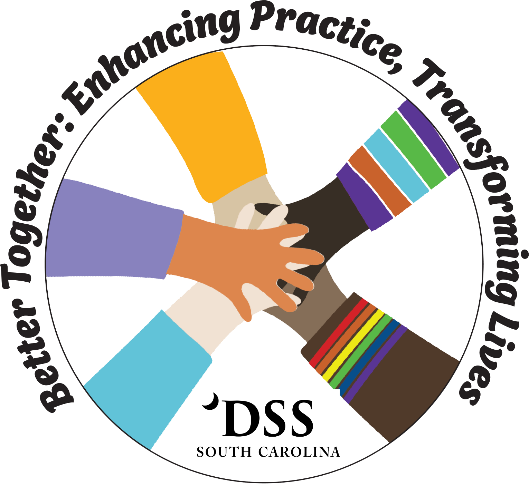
The Adoption Assistance and Child Welfare Act of 1980 provided the first Federal subsidies to encourage the adoption of children from the nation's foster care system. These subsidies, known as adoption assistance, serve to minimize the financial obstacles to adoption. In addition, other types of assistance often are available to help with medical care or other services. Adoption assistance serves to remove barriers and contribute to an increase in the adoption of children with special needs.
Adoption assistance may provide monthly maintenance payments, medical assistance, and other support, often until the child turns 18 or even 21. The state is required to enter into an agreement with the adoptive parents if the child qualifies for assistance and the agreements are entered into prior to finalization of the adoption.
Children can qualify for federal Title IV-E adoption assistance or Non-IV-E (state) assistance but not both. A child’s background and special needs determine if the child will receive support and if that support will be federally or state funded. If a child is IV-E eligible, the federal government reimburses the state (known as the Federal Financial Participation or FFP rate) a portion of the subsidy amount. In South Carolina, the federal contribution to Title IV-E-eligible children is 70.57 percent. The remaining cost of the program is funded with state funds.
Adoption subsidy benefits are negotiated on a case-by-case basis, differ for each child, and vary among states, but may include the following:
- Monthly Maintenance Payments
- Monthly maintenance payments (aka: monthly adoption subsidy payments) are a negotiated amount up to what the child welfare agency (DSS) would have paid for the child if they were in foster care. The payment cannot exceed the foster care board rate that a foster family would receive.
- Medical Assistance
- Children who are eligible for federal Title IV-E adoption assistance are automatically eligible for Medicaid benefits no matter the state they reside in. Children who are Non-Title IVE (State) funded maybe eligible for Medicaid, but it is dependent upon the state the family resides in. Families planning to move or adopt a child from another state should plan ahead and notify the state in which they adopted the child through. That will initiate the Interstate Compact for Adoption Medical Assistance (ICAMA). If you adopted through SCDSS you will need to email icama@dss.sc.gov. The ICAMA contact will assist the family in transferring of Medicaid.
- Non-Recurring Costs
- Parents who adopt children with special needs are often eligible for a one-time reimbursement to cover expenses directly related to the finalization of the adoption of child (such as adoption fees, agency supervision of the adoptive placement, court costs, attorney fees, travel, food, and lodging expenses, physical and psychological exams, birth certificate fees, etc.).
- Other Services
- Many states provide post-adoption services to families who adopt children with special needs. Some of the services include childcare, respite care services, in-home supportive services, referral to community services, and other child welfare services. Services vary from state to state and will typically be listed in the Adoption Subsidy Agreement.
SOUTH CAROLINA DSS ADOPTION
ASSISTANCE BENEFITS
DSS will provide adoption assistance benefits to families who complete a public or private domestic adoption if the child meets the eligibility criteria. Depending on the type of adoption that a family completes will also determine what benefits the family is entitled to.
For any benefit to apply the child must be deemed to be a special needs child. South Carolina Children’s Code of Law (Chapter 9, section 63-9-30 (10); Code of Laws Title 63 South Carolina Children's Code (scstatehouse.gov)) specifically addresses the definition of a special needs child.
"Special needs child" means children who fall into one or more of the following categories:
(a) children who are members of a sibling group;
(b) children of marginalized ethnic backgrounds, except for purposes of Section 63‑9‑60(B);
(c) children aged six or older; or
(d) children with physical, mental, or emotional disabilities.
Public Adoptions (only available to children who are being adopted from SC foster care):
- Monthly Adoption Subsidy payments (child can be either Title IV-E or Non-Title IV-E funded) that do exceed the board rate received by the foster parent.
- Continuation of monthly subsidy payments can continue until the child turns 21 if one of the following conditions exists and yearly documentation is received:
- Completing high school or equivalency program; or
- Enrolled in a post-secondary or vocational school; or
- Participating in a program or activity that promotes or removes barriers to employment (i.e. Voc Rehab, Job Corp, etc); or
- Is employed 80 hours per month; or
- Is incapable of participating in one of the above, due to a mental or physical disability.
- Any questions regarding Monthly Adoption Subsidy payments can be submitted to qaadoptionsubsidy@dss.sc.gov.
- Continuation of monthly subsidy payments can continue until the child turns 21 if one of the following conditions exists and yearly documentation is received:
- Up to $1500 in Non-Recurring Costs per child per finalization.
- Continued Medicaid eligibility (child can be either Title IV-E or Non-IV-E funded)
- For a list of services provided by Medicaid click on the following link: SC DHHS
- For children who are receiving IV-E Adoption Assistance they are entitled to receive Medicaid coverage in any state that the child or adoptive family are residing in under Title XIX (Medicaid) and Title XX (Social Services) of the Federal Social Security Act.
- For children receiving Non-IV E Adoption Assistance access to health care services for the child will be contingent on whether the future state of residence extends COBRA-reciprocity to children receiving Non-IV E Adoption Assistance Medicaid. This means if the adoptive family moves to a state that does not have an agreement with South Carolina, the adoptive family may not be able to obtain health care coverage for the adopted child through the state’s Medicaid program based on their receipt of adoption subsidy payments.
- Any questions regarding medical eligibility or transferring Medicaid to another state can be submitted to qaadoptionmedicalcoverage@dss.sc.gov.
- Supplemental Benefit for Medical Assistance (SBMA) (aka: medical subsidy)
- Is a program funded entirely from state funds to assist families adopting children from SC Foster Care who have or have a biological family history or physical, mental, and/or emotional handicaps. It may supplement, but does not replace: private health insurance, Medicaid, BabyNet, Individualized Education Plans, or other resources available to families. All requests for SBMA reimbursement, except respite care, requires prior approval from DSS and must be related back to the known conditions listed in the Adoption Assistance Agreement. You can email qaadoptionmedicalcoverage@dss.sc.gov for prior approval or questions regarding its usage.
- Included in the SBMA funding is respite care. A family can be reimbursed up to $500 per authorization year. It is not an amount separate and apart from the total amount authorized for the child’s authorization year. Respite is designed as a break for the adoptive parent(s) to enable her/him to cope with the stresses of caring for a child with special needs.
- Request for SBMA payments must be submitted to DSS using DSS Form 30129 (FEB 25) The form may be mailed to PO Box 1520 Columbia SC 29202, emailed to supplememtalreimbursementrequests@dss.sc.gov, or faxed to 803-898-1209.
- Is a program funded entirely from state funds to assist families adopting children from SC Foster Care who have or have a biological family history or physical, mental, and/or emotional handicaps. It may supplement, but does not replace: private health insurance, Medicaid, BabyNet, Individualized Education Plans, or other resources available to families. All requests for SBMA reimbursement, except respite care, requires prior approval from DSS and must be related back to the known conditions listed in the Adoption Assistance Agreement. You can email qaadoptionmedicalcoverage@dss.sc.gov for prior approval or questions regarding its usage.
- Adoptive parents are eligible for a 1-time approval for up to 52 weeks of Child Care Vouchers following the finalization of the adoption. DSS Form 3004 must be completed and submitted to Child Care licensing along with a copy of your adoption decree. In order to utilize this the adoptive family must reside in SC.
- Adoption Preservation Services (this service is also available to families who complete a public adoption from any US state)
- Adoption Preservation Services are generally in-home or community-based services that will work with entire family with the intention of preserving the family unit.
- Can request to renegotiate adoption subsidy by completing DSS Form 30127. For questions regarding renegotiating your monthly adoption assistance payments email qaadoptionsubsidy@dss.sc.gov.
- Children who are adopted on or after their 16th birthday are entitled to receive some benefits under the John H. Chafee/ETV program.
- Adoption Finalization Incentive Program for Attorney’s
- DSS provides private attorneys, representing prospective adoptive parents of children in foster care, a monetary incentive to finalize their adoptions in a timely manner. Learn more here.
- State Employees who adopt could receive adoption assistance through PEBA (Adoption Assistance Program | S.C. PEBA (sc.gov)).
Private Domestic Adoptions:
- Up to $1500 in Non-Recurring Costs.
- The adoptive family must submit an application and receive notification prior to finalization. The application must be submitted to privatenrcapps@dss.sc.gov.
- This is a 1x payment.
- The child must be deemed a special needs child.
- A child may qualify for Title IV-E Adoption Assistance monthly payments if he or she meets the following requirements (documentation must be presented to DSS) and an agreement is signed prior to finalization of the adoption: The child has been deemed special needs per the definition found South Carolina Children’s Code of Law (Chapter 9, section 63-9-30 (10) and meet one of the following;
- The child is eligible to receive Supplemental Security Income (SSI); or
- The child has previously received Title IV-E Adoption Assistance
- If the child qualifies for Title IV-E Adoption Assistance monthly payments will also be eligible for Medicaid.
- If a child qualifies for and is receiving Title IV-E Adoption Assistance the adoptive may request to renegotiate the adoption subsidy if new physical, emotional, or behavioral issues arise or due to cost-of-living increases and as long as the child is still eligible to receive assistance.
- If you need an application for the non-recurring cost, believe you may be eligible for monthly adoption subsidy payments, or have any other questions you can email PrivateAdoptionInquiry@dss.sc.gov.

